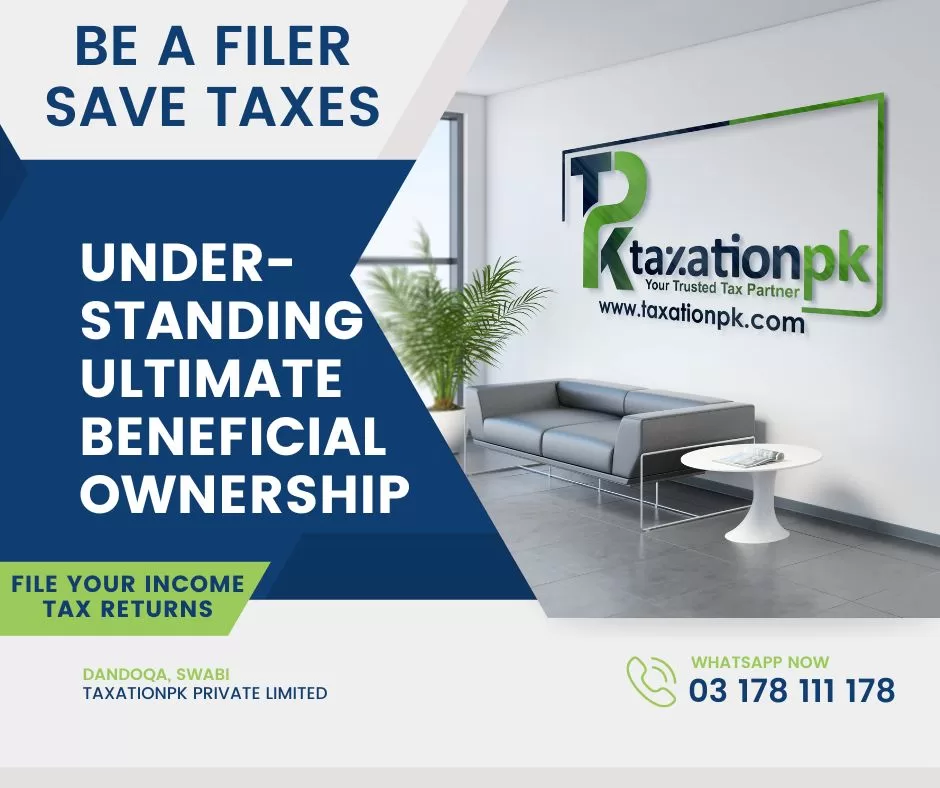As efforts against money laundering intensify, the concept of Ultimate Beneficial Ownership (UBO) has gained significant importance. In Pakistan, the government has taken several steps to ensure that companies operating in the country are transparent and accountable. In this article, we will explore the concept of UBO, its legal framework in Pakistan, and its implications for companies operating in the country.
What is Ultimate Beneficial Ownership?
An Ultimate Beneficial Owner is a person who has a significant stake in a company and/or on whose behalf the business is conducted. This person may be an individual or a legal entity, such as a trust or a partnership. The UBO is the person who ultimately owns or controls the company or partnership, either directly or indirectly.
Legal Framework for UBO in Pakistan
The concept of UBO has been given legal recognition in Pakistan. The Finance Bill 2022 defines the term “beneficial owner” as a natural person who ultimately owns or controls a company or Association of Persons (AOP), either directly or indirectly, through at least 10% shares or voting rights. The Bill also includes those who exercise ultimate effective control over the company or AOP through direct or indirect means, including control over the finances, decisions, or other affairs of the company or AOP.
The Companies Act, 2017, also requires companies to maintain information about their ultimate beneficial owners. However, these provisions require information in respect of natural persons who ultimately own or control a company through at least 25% shares or voting rights.
Form 45: Declaration of Compliance with Provisions of the Companies Act, 2017
Companies operating in Pakistan are required to file a declaration of compliance with the provisions of the Companies Act, 2017, using Form 45. This form is filed with the Securities and Exchange Commission of Pakistan (SECP) to ensure compliance with the following requirements:
- The company has issued notice as per Form 42;
- The company has received a declaration from its members as per Form 43;
- The company has noted accurate particulars of its Ultimate Beneficial Owners received as per Form 43;
- The Board of Directors of the company has authorized its Chief Executive Officer to provide the information as required under the regulations.
Implications for Companies
Companies operating in Pakistan must comply with the legal requirements regarding UBO. Failure to do so may result in penalties or other legal consequences. Additionally, companies must ensure that the information they provide is accurate and up-to-date. Companies may need to implement appropriate procedures to identify and verify their UBO, including conducting due diligence on their shareholders and investors.
Conclusion
The concept of Ultimate Beneficial Ownership is gaining increasing importance in Pakistan, particularly in the context of anti-money laundering efforts. Companies operating in Pakistan must comply with the legal requirements regarding UBO and ensure that they maintain accurate and up-to-date information about their beneficial owners. By doing so, companies can enhance their transparency and accountability, and contribute to a more sustainable and secure business environment in Pakistan.





